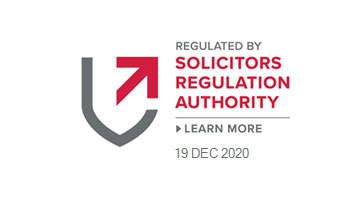On 9 November 2021, the Government published a new Code of Practice for commercial property relationships following the Covid-19 pandemic (“the Code”) and the Commercial Rent (Coronavirus) Bill was presented to Parliament. It is intended that the Bill will complete its passage through Parliament and become law on or before 25 March 2022.
What tenancies does the Bill apply to?
The Bill seems to be narrower in scope than the Code. It expressly covers any business tenancy to which Part 2 of the Landlord and Tenant Act 1954 applies.
What payments does the Bill cover?
The Bill creates the concept of a “protected rent debt”. The definition of rent extends to any amount payable for use of the premises whether or not described as rent, service charge, insurance, interest and VAT. It also includes drawing down on a rent deposit.
Rent is “protected” if:
- the tenancy was “adversely affected by Coronavirus”; and
- the rent accrued during a period ring-fenced by the Bill, which is known as “the protected period”.
What is the protected period?
The protected period begins on 21 March 2020 and ends on or before 18 July 2021, depending on the closure requirements or specific coronavirus restrictions for that particular business. The end of the protected period is the last day the business was subject to a closure requirement or a “specific coronavirus restriction”. This means that the protected period will vary from business to business.
Does the Bill impose restrictions on action to enforce payment of protected rent?
Yes, a temporary moratorium is introduced from the passing of the Bill (and in some cases, as indicated below, from 10 November 2021) prohibiting the certain enforcement methods for non-payment of ring-fenced rent. For more information, read our Rent arrears during Covid-19: Options for landlords in England and Wales page.
The moratorium applies until the conclusion of arbitration or, if no reference to arbitration is made, 6 months after the Bill is passed.
The Code
This took effect from 9 November 2021 and replaces the existing Code of Practice first issued on 19 June 2020. Key points of the new Code are:
- It represents best practice and applies to all commercial leases held by businesses with rent arrears (including sums owed for service charges and insurance) accrued due to the impact of the Covid-19 pandemic.
- It explains how the new arbitration scheme will work for ring-fenced arrears.
- There is a continuing expectation that tenants who can pay their rent in full should do so.
- The viability of the tenant’s business is paramount but not at the expense of a landlord’s solvency.
- Landlords and tenants are encouraged to be transparent and exchange information as to their circumstances.
- Annex A to the Code contains a list of mandated closures due to Covid-19.
What about arrears falling due after 18 July 2021?
The Bill does not currently apply to any arrears accrued either before 20 March 2020 or after 18 July 2021. Therefore, a landlord may issue debt proceedings for any arrears outside the scope of the Bill, subject to compliance with the Code.
To determine whether these changes apply to you or how you can claim your rent arrears please contact our specialist team here at Onyx Solicitors, on 0121 268 3208 or email us at info@onyxsolicitors.com with your query.





